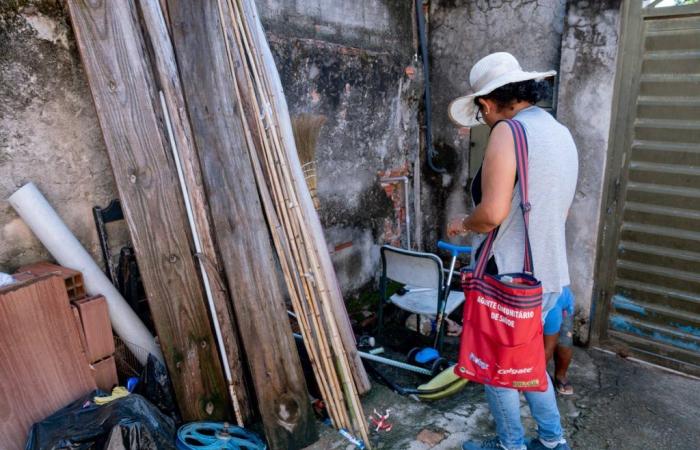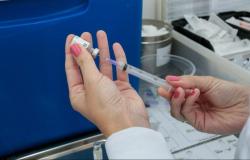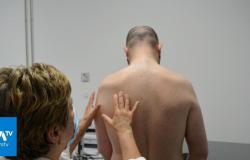
In the midst of a epidemic scenario, health agents from the City of Piracicaba (SP) managed to enter 53.2% of the properties visited during one of the last joint efforts held in the city, last Saturday (20), to combat the Aedes aegypti mosquito, which transmits dengue, zika, chikungunya and urban yellow fever. The information comes from the municipal administration.
The data on residential visits refer to the action carried out in the Morumbi neighborhood. Staff from the Municipal Plan to Combat Aedes (PMCA) teams visited 1,390 addresses. Of this total, 680 houses were able to be checked, received 30 refusals – when the owner does not allow agents to enter – and 710 properties were closed.
On the same day, professionals collected seven tons of unusable waste in the Dengue Arrastão carried out in the neighborhoods of Vila Sônia, Javary I, II and II, Boa Esperança I and II, Campos Elíseos, Jardim Maria Cláudia, Jardim dos Antúrios and Jardim Irapuã.
To report abandoned properties or places that have possible dengue breeding grounds, simply register a request with SIP 156 or directly with the PMCA by calling (19) 3427-3351.
Next Saturday (27), from 8am to 1pm, the Dengue Mutirão will go to the East side of the city in the Vila Independência region, with the Saudade Cemetery as its meeting point.
On the same date, but from 8 am to 2 pm, the Arrastão da Dengue continues in the North region and will pass through the following neighborhoods:
- Saint Therese
- IAA
- Vila Rios
- Industrial Park
- São Benedito Garden
- Jardim Lídia, Jardim Castor
- Jardim Conceição
- Residential Andorinhas
- Bessy Garden
- Taiguara Garden
- Residencial Caieiras
- Chácara Santo Antônio, with a meeting point at Varejão do IAA, on Av. Pedro Côrrea, crossing with Rua Paraibuna.
Five deaths and 9,800 cases
The patient is a woman, resident of the Central region, who suffered from chronic illnesses, aged between 80 and 89 years. The death occurred in the week between March 17th and 23rd. O case is autochthonous, when they have local origin, in the city, without classification for dengue serotype.
Piracicaba has 9,839 positive cases of dengue. Four suspicious deaths are still under investigation.
The region has 12 confirmed deaths caused by dengue. Check out the list below.
- 04/03: Woman, 83 years old, passed away in Limeira
- 03/18: Woman, 53 years old, died in Limeira
- 03/19: Woman, between 70 and 79 years old, died in Piracicaba
- 03/20: Man, 28 years old, died in Capivari
- 03/20: Man, between 60 and 69 years old, died in Piracicaba
- 01/04: Man, 88 years old, passed away in Limeira
- 04/04: Man, aged between 80 and 89 years old, died in Piracicaba
- 05/04: Man, aged between 80 and 89 years old, died in Piracicaba
- 05/04: Man, aged 39, died in Santa Bárbara d’Oeste
- 04/08: Woman, 44 years old, resident of Limeira
- 04/18: 74-year-old woman, resident of Capivari
- 04/19: Woman, aged between 80 and 89 years, died in Piracicaba
Capivari and Piracicaba confirm two more deaths from dengue and the region has 11 deaths
The Department of Health emphasizes that it continues to monitor dengue cases in the municipality and continues with intense work to combat the Aedes aegypti mosquito, which transmits dengue, zika virus and chikungunya.
“With support from the Municipal Program to Combat Aedes (PMCA), linked to the Zoonosis Control Center (CCZ), health and zoonosis agents expanded their activities with guidance and educational actions house to house from Monday to Friday.”
The trawlers and joint efforts continue every Saturday and the nebulization teams continue to operate in regions with the highest number of cases, in addition to actions to remove unusable items from hoarders’ homes, forced entry into suspected breeding sites, among other actions.
When to seek care? In the metropolis, the guidance from the Department of Health is that any resident who presents a high fever (39ºC to 40ºC) of sudden onset and has at least two of the other symptoms, should immediately seek a health service.
The main symptoms, In addition to fever, they are: headache, prostration (weakness, lethargy, limpness), muscle and/or joint pain and pain behind the eyes.
See some of the Health guidelines to avoid dengue:
- Use repellent, especially in closed places;
- Eliminate sources of standing water;
- Keep flower pots and plant dishes filled with sand to the brim;
- Store bottles with the mouth facing down;
- Always clean the pipe gutters;
- Do not throw garbage on vacant lots;
- Always place trash in closed bags;
- Keep buckets and water tanks properly covered and pools with chlorine;
- Do not let water accumulate in tires;
- Pierce aluminum cans before they are discarded to prevent water from accumulating;
- Wash bird and animal drinking fountains at least once a week;
- If you suspect the disease, immediately contact the health unit closest to your residence and never use medication yourself.
VIDEOS: Everything about Piracicaba and the region
Tags: refusal closed premises properties left inspection joint effort dengue Piracicaba Piracicaba Region
--




